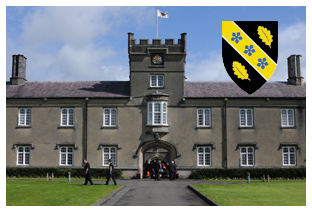
Sophia Centre Review
September 2020

Conversations
Interview with Patrick Curry
Patrick Curry is a tutor in the Sophia Centre at the University of Wales Trinity Saint David and was formerly Senior Lecturer first at Bath Spa University and then at the University of Kent. Patrick runs The 9th House website, which posts academic resources on astrology, and is also a world-renowned expert on the life and writings of J.R.R. Tolkien. His book, Defending Middle-Earth: Tolkien, Myth and Modernity, is a well-known classic. Patrick is also the author of Ecological Ethics, perhaps the best and most comprehensive discussion of ethics in relation to ecological and environmental thought.
I took the chance to catch up with Patrick following the publication of his latest book, Enchantment: Wonder in Modern Life, and asked him a few questions.
Nick: Patrick, I have read your book. In fact, I think I have read everything you have written on enchantment. This may be an impossible question, but can you define enchantment in one sentence?
Patrick: I can try! Enchantment is sheer wonder arising from an encounter, across a gap of differences, with another being, regardless of who or what they may be, and a recognition of their unique and therefore irreplaceable value. And (if I am allowed another sentence) this is only possible for living, embodied, ecological beings; so ultimately, it is an experience of being fully alive.

Nick: Why do you think it is important to acknowledge the existence of enchantment? How can we gain from understanding it?
Patrick: I think it is important because enchantment is not merely a subjective or psychological state. It reveals something essential about the enchanting other – a truth. And that truth, and an apprehension of its value, cannot be replaced by impersonal or abstract knowledge, because they are not felt, or perceived, with one’s whole being. So although it shows a truth about the world, or one part of it, enchantment is not merely objective either. It is upstream of such distinctions.
Nick: When the great sociologist Max Weber spoke about disenchantment, the opposite of enchantment, as a core characteristic of the modern west, he said that calculation is disenchanted. Some people have argued that this means that science is disenchanted. But do you think that scientists can find science enchanting? I am thinking of Albert Einstein and what he called his ‘cosmic religion’, but also of astronomers who talk about the stars with a sense of awe and wonder.
Patrick: Scientists certainly can and do find the natural world, including the cosmos, enchanting. The formation of modern science as a whole, however, has strongly sought to reduce or even eliminate wonder, seeing it as a sign of ignorance and superstition. This is to confuse a puzzle, which is (in principle) solvable, with a mystery, which can only be appreciated. But the latter entails a humility which doesn’t sit well with science as it has become. By the same token, despite the disenchantment of much of the modern world, with its will-to-power and drive for total mastery, modern things and circumstances can induce enchantment. But when that happens, you are having a non-modern experience, as I described above.
Nick: In the 1980s you wrote and edited several seminal works on the history of astrology, especially your major work on 17th-century English astrology, Prophecy and Power. Do you get any sense that 17th-century astrology could be enchanting? And coming to the present, do you think that contemporary astrology is enchanting or disenchanting?
Patrick: I don’t think astrology has changed that much since the 17th century. It’s still a perplexing mixture of enchantment – that moment of pure wonder when it indisputably works, delivering a precise personal truth – and disenchantment, when astrologers, aping both the religious supernaturalist and the scientific materialists, fall into the trap of seeking knowledge, control and thence power.
Nick: And lastly, what projects are you working on at the moment?
Patrick: I am working on a follow-up book entitled Art, Enchantment and Power. I have also started a story. That’s something quite new for me, so I’m looking forward to finding out where it wants to go.
Nick: That all sounds most intriguing. Thank you for talking to us!
By Dr Nicholas Campion
Patrick Curry’s book - Enchantment: Wonder in Modern Life - is published by Floris Books: florisbooks.co.uk/book/Patrick-Curry/Enchantment/9781782506096
Watch Patrick reading from his book here: youtube.com/watch?v=Y5STxQC6dZ8
Visit Patrick’s website here: patrickcurry.co.uk
Visit The 9th House website here: the9thhouse.org
Welcome to the public outreach page of the Sophia Centre for the Study of Cosmology in Culture at the University of Wales Trinity Saint David, with information about studying with the University, as well as links to related conferences, classes, publications and events. To go straight to the Sophia Centre's University page please go here.
Please follow our guidelines on Netiquette.
Click the link below to join our mailing list to keep informed of Sophia Centre events:
Mailchimp
Upcoming Events
2025
14-16 Jul,
Sophia Centre
Summer School 2025
12-13 Jul,
Sophia Centre
Annual conference 2025
28 Apr,
Alumni lecture
Alejo Lopez

























